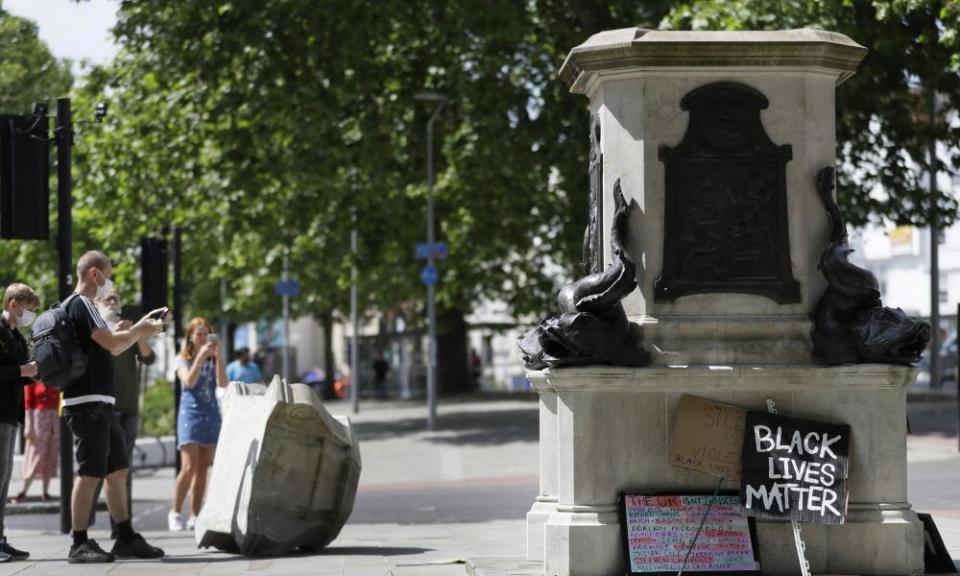Bristol council calls for parliamentary inquiry on slavery reparations

Councillors in Bristol have called for a parliamentary commission of inquiry to be set up to investigate reparations for the UK’s part in the slave trade.
A motion approved at an extraordinary full council meeting on Tuesday evening said that the experiences, voices and perspectives of African heritage groups were needed to help develop a “reparations plan” for the city, which is the first authority outside London to approve such a measure.
The champions of the motion, which comes eight months after Black Lives Matter protesters toppled a statue of the Bristol slave trader Edward Colston into the city’s harbour, said reparations could include financial compensation but was about much more than money.
The Green party councillor Cleo Lake, who proposed the motion, said: “This is about equity and understanding. Reparation does include but goes beyond monetary compensation.”
She added: “It is of international significance that this cross party motion has passed. History is made. Bristol is now the first core city in the UK to give our support to the growing campaign for reparations.”
Related: Slave trader’s portrait removed from Bristol lord mayor’s office
Bristol council also agreed that more local initiatives to help communities still suffering from systemic poverty many years after the trafficking of African people should be introduced.
Speaking outside the chamber, Lake said: “Bristol merchants grew rich through African enslavement and this legacy is still with us – not only in the buildings that surround us, but also in the rife inequalities of wealth, power and opportunity across our city.”
Lake said reparations were not a “paycheque” to the descendants of enslaved people. “Reparation is actually a legal concept defined by the UN which calls for holistic repair,” she said. “It can include public apologies, social justice initiatives, education, cultural projects, commemorative ceremonies, affirmative action and much more.”
She added: “We do not have the answers as to exactly what reparations should look like – that’s why what we are calling for is a process of repair which hears from many of the voices in our communities that have been impacted and are often not heard.”
During the debate, the city mayor, Marvin Rees, said: “The thing that really appeals to me is the chance to have a national and international discussion.”
Related: Bristol mayor: Colston statue removal was act of 'historical poetry'
He added: “As the first directly elected black mayor in Europe, I can also tell you I’m not just the mayor. I still experience the world as a black man and even within this organisation I experience the consequences of having a black skin. Race is an ever-present reality that does not disappear just because we would like to wish it away.”
Deputy mayor Asher Craig added: “The toppling of the statue of Edward Colston in June was a symbolic demonstration of our city’s complex relationship with race. It highlights the long shadows cast by slavery and racism in Bristol and how this shapes our city’s discourse about inequality and exclusion.”
It came as the culture secretary, Oliver Dowden, said that museums and cultural institutions should not allow themselves to be “pushed around by the zeitgeist of the day”.
Speaking at the Policy Exchange UK thinktank’s History Matters conference on Tuesday, Dowden said some cultural organisations feel they are being “bullied by leftwing campaigns”.
He added that museums and other institutions in the UK should act as “custodians” of cultural heritage and not seek to erase certain aspects of it.
Discussing his advice to museums and cultural institutions, he said: “Don’t allow yourself to be pushed around by the zeitgeist of the day.”

 Yahoo Finance
Yahoo Finance 